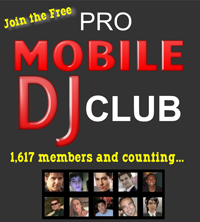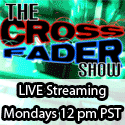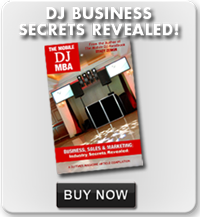by Dave Austin
Dating back to the 1950s, rockabilly is one of the earliest styles of rock & roll music. Earlier, it was simply referred to as hillbilly music before Elvis Presley, Carl Perkins, Bill Haley, Johnny Cash, Gene Vincent, Eddie Cochran and other young country artist started kicking out revved-up versions of songs, primarily in the Southern U.S.
Rockabilly was the first rock & roll style to be performed primarily by white musicians, setting off a cultural revolution which still reverberates to this day. The music cultivated an attitude that insured its enduring appeal to teenagers – a combination of rebellion, sexuality, freedom and a sneering disdain for the workaday life of parents and authority figures.
Rockabilly, with it’s influences from western swing, boogie woogie and R&B, enjoyed great popularity in the U.S. during 1956-57, but radio airplay declined after 1960 because of the 1959 death of Buddy Holly (along with Ritchie Valens and the “Big Bopper”), the induction of Elvis into the Army and an overall change in American musical tastes. However, the late ‘70s and the ‘80s saw a major revival of popularity which has continued until today, often within a rockabilly subculture.
As late as 1980 rockabilly was still making it to the top of the charts with Queen’s “Crazy Little Thing Called Love,” said to be an expression of Freddie Mercury’s admiration of Elvis’ music.
When listening to early rockabilly recordings, you’ll notice the use of echo, sometimes referred to as slapback, flutter echo and reverb. On Bill Haley’s “Rock Around the Clock,” the echo was the result of recording the band under the large domed ceiling of Decca’s New York studio, located in a former ballroom – a big barn-like building which was also used to record other rockabilly musicians such as Buddy Holly.
Historical recordings from the era include Gene Vincent and his Blue Caps’ 1956 recording of “Be-Bop-A-Lu-La” which sold over 200,000 records within twenty-one days and remained atop both the country and pop music charts for twenty weeks. It eventually sold more than million copies. Also listen to “Summertime Blues” by Eddie Cochran, Roy Orbison with “Oobie Doobie and then-fifteen year-old Janis Martin’s “Will You Willyum. (RCA).
Elvis’ 1968 “comeback,” acts such as Sha Na Na, the film “American Graffiti” and TV shows like “Happy Days” generated a national curiosity about the music of the 1950s, particularly in England where a rockabilly revival began in the ‘70s in clubs and among record collectors.
British rockers drew heavily from the form with the Beatles, the Rolling Stones, The Who, Jeff Beck, Jimmy Paige and many others recorded cover versions of rockabilly musicians.
In 1983, Neil Young recorded a rockabilly album titled “Everybody’s Rockin.” Although the album was not a commercial success, it involved Young in a widely publicized legal scrap with his record company which sued him for making a record that “didn’t sound like a Neil Young record.” Also during the ‘80s, a number of country artists scored with rockabilly-style recordings – among them Marty Stuart’s “Hillbilly Rock” and Hank Williams Jr.’s “All My Rowdy Friends Are Coming Over Tonight.”
Claimed to be the biggest selling rockabilly vinyl recording of all time is Bill Haley & The Comets’ “Rock Around the Clock,” (estimated 25 million sales). For more information, you’ll want to check out the original Rockabilly Hall of Fame website, which was established in 1997 to present early rock & roll history and artists and personalities in this pioneering genre.
Dave Austin – Music Professor
Dave Austin began his career at age 13 at a small, hometown radio station. He went on to graduate from the University of Southern Mississippi with a Bachelor’s degree in broadcasting.
Since that time, Dave has been a mobile and radio DJ, radio station Program Director, and a TV news reporter and anchorman. He has also done voiceover work for documentaries and commercials.
In 1986 Dave’s longtime passion for music prompted him to start “Southern Celebrations DJs,” a multi-system mobile entertainment company serving clients in Tennessee, Northern Georgia and Northern Alabama.
You can email him c/o [email protected] or visit his website – Moonlight Mobile Music.
![]() Tweet This Post
Tweet This Post









